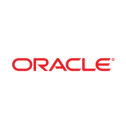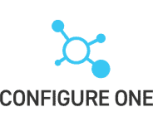CPQ Software for eCommerce
The eCommerce business model is growing in popularity among B2B companies. This growth is partly because eCommerce allows businesses to reach a wider audience than they would through traditional methods like phone or in-person sales. In addition, eCommerce platforms enhance the customer experience, increase sales efficiency, and increase sales volumes due to their ease of use.
How do B2B companies realize the operational efficiencies and revenue growth that B2C companies have experienced by using this digital sales channel? The answer, in part, is CPQ software. CPQ enables a highly-personalized buying experience for B2B eCommerce.
For manufacturers, distributors, and services companies that sell online, CPQ software accelerates the ordering process. B2B buyers can configure the products they want online and instantly receive a quote including all relevant pricing information. A streamlined quoting process saves time for the customer and the business, as there is no need to wait for a quote to be created manually.
Personalization: How CPQ Enhances the Customer Experience
Customer experience is a significant factor in eCommerce purchasing. For B2B customers shopping online, selecting from a list of available products is no longer sufficient. Customers demand personalization, customized product selections, and configurable products in an easy-to-navigate platform.
CPQ helps provide a better customer experience by making it faster and easier to customize products and services while improving accuracy. With CPQ, businesses can configure complex product configurations quickly and accurately. It allows users to specify product options such as size, color, material type, etc., and the seller to determine pricing based on the chosen configuration. Furthermore, CPQ enables businesses to create accurate quotes quickly based on a customer’s chosen configuration. This eliminates manual errors associated with manually building quotes and ensures customers receive the right product at the right price promptly.
Additionally, CPQ provides real-time analytics and insights into customer preferences and buying behaviors so businesses can better personalize their offerings for each individual customer. This helps create an improved overall customer experience since customers can get what they need when they need it without having to wait or go through frustrating processes when trying to customize something for themselves.
Challenges CPQ Solves for B2B eCommerce Companies
Here are some of the many business issues that CPQ helps solve:
- inconsistent pricing
- errors in quotes
- incorrect product configurations
- inaccurate inventory data
- long turnaround times for quotes
- revenue leaks due to incorrect quotes and billing
- delays in quote approvals
CPQ Solutions for B2B eCommerce
PandaDoc CPQ Overview
Oracle CPQ Overview
Configure One CPQ Overview
Conga CPQ Overview
PROS CPQ Overview
Salesforce CPQ Overview
How CPQ Helps Increase eCommerce Sales
CPQ automates the entire sales process and pulls data from various sources, such as pricing rules, product specifications, and customer preferences. This allows customers to quickly configure their own products using predetermined parameters while still getting a tailored solution that meets their individual needs.
The benefits of CPQ extend beyond simply making it easier for customers to configure products, however; it also helps increase sales by being able to suggest add-ons or upsells to enhance their orders. Customers may be presented with additional features or services that complement what they already chose, helping increase average order value. Additionally, CPQ can help automate discounts based on certain criteria, such as volume purchases or multi-product orders, which can encourage larger orders and bring in more revenue.
CPQ Software Benefits for B2B eCommerce Companies
The eCommerce business model is customer-centric, so many benefits focus on providing an excellent customer experience and simplifying the product configuration and ordering process. CPQ software creates a seamless sales journey vital for many industries, particularly B2B eCommerce companies.
In addition to increasing sales, the benefits of CPQ for B2B eCommerce include:
Self-Serve: eCommerce CPQ systems let buyers order from a self-service portal that doesn’t require a salesperson. Automated quote creation helps buyers get what they need, when they need it, at the right price, without waiting for a sales rep to contact them with a quote.
Customized Experience: One crucial advantage of CPQ software is its power to create personalized quotes for B2B customers. For example, quotes can be pre-populated based on your customer’s prior purchase and special pricing data stored in the ERP system. CPQ can even create customized product catalogs specifically for each customer. These features help simplify the order process and enhance the customer experience.
Fast Accurate Quotes: CPQ generates real-time quotes that display immediately online. In addition, CPQ software lets buyers change and update their order requirements to create new quotes based on their changes.
Discounts: It’s easy to set up promotional pricing and special offers in the CPQ tool so customers can take advantage of deals. CPQ software runs on a rules-based engine that ensures customers get the right price every time.
Minimizes Errors: Quotes and orders must be correct when using an eCommerce platform. Errors in product configurations and pricing can cause huge problems, especially when making bulk purchases or ordering customized products. With CPQ software, you can insert rules to guarantee your customers select products you can deliver, reducing errors and increasing customer satisfaction.
Faster Delivery: Another benefit of CPQ software is that automated quoting means faster ordering and fulfillment. Accurate orders reduce the chances of production delays.
Reduced Sales Cycles: CPQ software shortens your sales cycle with rules-driven automation. Automation replaces error-prone manual quoting, a huge advantage for companies with complex pricing and configurable products.
How to Select the Right CPQ Software for Your B2B eCommerce Company
Many of the same features that make B2C eCommerce successful also work for B2B businesses. These include a wide selection of products, easy checkout processes, and reliable delivery systems. In addition, B2B eCommerce platforms often offer features like customized pricing and order tracking that are especially useful for businesses.
When choosing a CPQ solution, it is essential to consider what features are important to your business. Some of the questions you may want to ask include:
- How many products do you sell?
- What level of customization do your customers need?
- How complex are your product configurations?
- Are you looking for an on-premises or cloud-based solution?
Features eCommerce companies should consider:
Real-time Pricing: CPQ is a pricing management solution that can calculate pricing based on the pricing model you determine when implementing the system. In addition, companies can set location-specific pricing when doing business across regions. Moreover, if prices shift, the new data will be transferred to your CPQ, and the updated prices will be displayed on your eCommerce site. Additionally, CPQ software can help businesses track discounts and ensure the correct rates are offered, improving customer satisfaction and increasing sales.
Product Configuration: CPQ software provides an easy-to-use interface that makes it simple to configure even the most complex products or product and service bundles. For example, if you sell custom-engineered or manufactured products, you may want to implement CPQ with a visual configurator to enable buyers to build products to their specifications. On the other hand, a configurator with drop-down menus may be all you need if you sell wholesale parts. Either way, CPQ ensures product configurations are valid before they are sent to production.
Guided Selling: With CPQ, your customers follow a guided selling workflow with interactive prompts for a controlled buying experience that ensures they get the products they need, in the correct quantity, at approved prices.
Product Recommendations: CPQ software provides recommendations for ancillary products, increasing average order size. Additionally, CPQ software helps manufacturers quote products based on real-time inventory levels and updated product pricing. All of these benefits contributed to increasing revenue and profitability.
Integration: CPQ software extends the value of many other business operations systems. With seamless integration with ERP and CRM platforms, sales engagement software, and revenue operations systems, CPQ helps customers achieve a fluid buying experience that connects the quote-to-order-to-manufacture process.
Reports and Analytics: CPQ software can generate data on customer interactions with your eCommerce site that help you make better decisions about your product lines and pricing. Additionally, CPQ software can help you to gather data and create reports to improve your customer experience and improve revenue forecasts.
Best Practices for CPQ Integration with eCommerce
Integrating CPQ (Configure Price Quote) software with eCommerce platforms can help businesses streamline their sales cycles and ensure better accuracy when quoting prices. By synchronizing product catalogs and pricing data across platforms and making the process of configuring, pricing, and quoting products more efficient and accurate, CPQ integration can bring many benefits to a business.
Follow an Implementation Framework
Before integrating CPQ with any existing solutions, it’s imperative to follow an implementation framework that includes the following:
- Conduct a needs analysis to determine what your team wants from the CPQ solution.
- Establish goals for the integration to set measurable benchmarks for success.
- Plan for the implementation to ensure leadership and team buy-in and keep the project on track.
- Train the team to minimize ramp time and time to value.
- Measure progress to ensure goals have been met and to determine the impact of CPQ on sales KPIs.
Ensure Accurate Data Synchronization
Another best practice for integrating CPQ with an eCommerce platform is ensuring product data is properly synchronized across both systems. This means ensuring that product information like descriptions, attributes, images, and pricing are kept up-to-date. When customers search for and configure products online, they should be able to see accurate pricing information generated by the CPQ system before checking out. This prevents any discrepancies between what customers see online and what they end up paying once their order is processed.
Establish Clear Workflows
Another important practice for integrating CPQ software is establishing clear workflows between both systems. Each system must communicate effectively with the other to ensure accuracy when generating quotes and invoices. Additionally, it’s important that customer information is securely shared between both services so customers don’t have to re-enter their data multiple times when completing their purchase.
Provide Security
Finally, it’s essential to have a robust security system in place when integrating a CPQ solution with an existing eCommerce platform. This includes ensuring secure data storage for customer information and providing encryption for any transmitted data between the two systems. Additionally, it’s important to set up automated backups of all customer records stored in either system to protect against potential security threats or data loss due to hardware failure or malicious attacks.
By following these best practices for integrating CPQ solutions, businesses can enjoy improved accuracy in quoting prices and streamlined sales processes resulting in higher customer satisfaction.

Rhonda Bavaro excels in boosting SaaS companies’ growth through innovative content marketing, thriving in the dynamic sales tech industry amidst evolving technologies that drive revenue acceleration.






